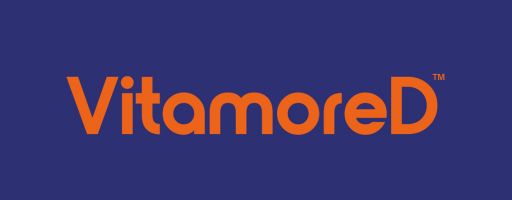Vitamin D, often referred to as the "sunshine vitamin," plays a crucial role in maintaining overall health and well-being. It's essential for bone health, immune function, and even mood regulation. However, despite its importance, many people are deficient in vitamin D, which can lead to various health issues. In this guide, we'll explore why you need vitamin D, the best sources, and the differences between calcifediol and cholecalciferol supplements.
Why Vitamin D Is Essential
Vitamin D is a fat-soluble vitamin that helps your body absorb calcium, promoting strong bones and teeth. It also supports muscle function, cardiovascular health, and the immune system. Without adequate vitamin D, you may be at risk for conditions such as osteoporosis, rickets in children, and a weakened immune response.
Key Benefits of Vitamin D:
- Bone Health: Vitamin D helps regulate calcium and phosphate levels in the body, essential for maintaining bone density and preventing fractures.
- Immune Support: It enhances the pathogen-fighting effects of monocytes and macrophages—white blood cells that are important parts of your immune defence.
- Mood and Mental Health: Low levels of vitamin D have been linked to mood disorders like depression. Supplementing may help alleviate symptoms of seasonal affective disorder (SAD).
- Heart Health: Vitamin D is associated with a lower risk of cardiovascular diseases, including heart attacks and strokes.
- Menopause and Hormonal Balance: Vitamin D controls the production and activity of most reproductive hormones such as oestrogen and progesterone.
- Thyroid Health: Vitamin D deficiency may increase the risk of thyroid antibodies and has been associated with thyroid imbalance.
- Blood Sugar Control: Vitamin D helps to regulate insulin and blood sugar levels.
- Muscle Health: Vitamin D regulates muscles contraction and function, playing a major role in muscle growth and development.
Sources of Vitamin D
There are three primary ways we are told we can acquire vitamin D: sunlight exposure, food, and supplements.
- Sunlight (our favourite source): When your skin is exposed to sunlight, it synthesises vitamin D. However, factors like geographic location, time of year, skin colour, and sunscreen use all affect how much vitamin D your body produces and it is rare that people get enough year-round vitamin D from sunlight alone.
- Food Sources (not recommended): While food sources of vitamin D are often recommended, the reality is that the quality is poor, the quantity is unregulated, synthetic sources are usually added to foods and if you don't have the required co-factor nutrients to process this vitamin D, then the body will struggle to convert it to a usable form. While we absolutely encourage the addition of nourishing foods to your diet, a Vitamin D deficiency is unlikely to be efficiently reversed through diet alone.
-
Supplements (often necessary): For many people, especially those with limited sun exposure, genetic or medical limitations affecting their vitamin D status etc, supplements are the most reliable way to maintain adequate vitamin D levels year-round, as well as quickly correct a vitamin D deficiency or insufficiency.
Vitamin D Supplements: Calcifediol vs. Cholecalciferol
When it comes to vitamin D supplements, the two most common forms are cholecalciferol (in-actve vitamin D3) and calcifediol (actve vitamin D3).
Understanding the difference between these can help you make an informed decision about which supplement is best for you.
Cholecalciferol (In-active Vitamin D3)
Cholecalciferol is the form of vitamin D that your skin produces in response to sunlight and is then processed and converted into calcifediol for the body to use. It’s widely available and commonly found in over-the-counter supplements. Once ingested, cholecalciferol is converted in the liver to calcifediol, the active form of vitamin D that your body can use. As choleclciferol has a long journey to get to a form that can be used by the body, it requires a lot of additional nutrients and co-factors to turn it into it's active form. While this shouldn't be an issue for a healthy, nourished and unstressed body, those who have existing health issues, a genetic predisposition to poor Vitamin D conversion or a lack of available co-factors from a nourishing diet will struggle to utilise this form of Vitamin D in the body regardless of the quantity they take.
Calcifediol (Active Vitamin D3): A Superior Supplement
Calcifediol is the already activated form of vitamin D. Unlike cholecalciferol, which requires conversion in the liver, calcifediol is ready for your body to use immediately. This can be particularly beneficial for individuals with liver conditions, those who may have difficulty converting cholecalciferol to its active form such as individuals with low levels of co-factors or a genetic predisposition to poor Vitamin D conversion.
Benefits of Calcifediol Over Cholecalciferol:
- Faster Absorption: Calcifediol is absorbed more rapidly, leading to quicker increases in blood levels of vitamin D.
- Higher Potency: Studies suggest that calcifediol is more potent, meaning smaller doses can be more effective compared to cholecalciferol.
- Safer: As calcifediol is 100% absorbed, individuals can take smaller quantities to achieve optimal vitamin D levels which reduces toxicity risk.
- Reliable for Certain Health Conditions: For those with liver impairment, specific metabolic conditions or certain genetic SNPs, calcifediol may be a more effective option.
Why take the risk with Cholecalciferol when you can use Calcifediol instead?
How Much Vitamin D Do You Need?
The amount of vitamin D you need depends on several factors, including age, health status, and sun exposure. The recommended daily allowance (RDA) for most adults is 600-800 IU (International Units), but studies suggest that our actual minimum daily requirement should be closer to 10,000IU, particularly for some individuals.
Conclusion: Finding the Right Balance
Vitamin D is essential for maintaining optimal health, and while sunlight can provide some of your needs, supplements are often necessary to achieve and maintain adequate levels. If you’re considering supplementation, understanding the differences between cholecalciferol and calcifediol can help you choose the most effective option for your needs. Calcifediol, with its superior absorption and potency, may offer significant advantages above cholecalciferol, particularly for those with specific health concerns or those wanting to save money on purchasing additional co-factor nutrients like vitamin K, magnesium and boron.
Ensure you’re getting enough vitamin D to support your bones, immune system, and overall well-being. Consult with a healthcare provider to determine your vitamin D levels and find the supplementation plan that's right for you.




